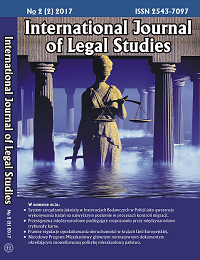DIETROFRONT DELLA CORTE COSTITUZIONALE ITALIANA: IL PAREGGIO DI BILANCIO PUO’ GIUSTIFICARE ANCHE UN ILLEGITTIMO RICALCOLO DELLE PE
CHANGE IN THE ITALIAN CONSTITUTIONAL COURT:
BUDGET BALANCING MAY ALSO JUSTIFY AN ILLEGITIMATE RECALCULATION OF PENSIONS
Author(s): Giovanni BiancoSubject(s): Constitutional Law
Published by: Międzynarodowy Instytut Innowacji "Nauka - Edukacja - Rozwój"
Keywords: budget balance – C. Cost; sent. n. 70/2015 – C. Cost; sent. n. 178/2015
Summary/Abstract: With the decision of October 25, 2017, in Italy the Constitutional Court has finally ruled that the needs of public finance can prevail over the rights of pensioners until an unlawful block of pension revaluation has been remedied. With the introduction of the principle of a balanced budget into the Constitution (art. 81), the foundations are laid to begin to tailor labor policies to the needs of economic and financial elite. The principle is rooted in European legislation that both the EU institutions and the European System of Central Banks (ESCB) are committed to pursue exclusively the objective of price stability (and therefore, as a matter of priority, of a given political system). Only once, without prejudice to this objective, can you pursue the general policies of the Union (such as employment and wage policies). With a balanced budget - constitutionalised in 2012 - the government wanted to experiment - among other things - to what extent it can block the revaluation of pensions and state seniority benefits. At first, the Constitutional Court, in ruling no. 70/2015, ruled against the government and sentenced it to return the sums to retirees inclusive of the revaluation in 2013. In that case, the consultation has considered the constitutional principles of proportionality and adequacy of the pension (art. 36 and 38 Cost.) as taking precedent over a balanced budget (art. 81). The Government reacted: a) returning to pensioners only 2 of the 17 billion Euro taken unlawfully (by means of the so-called Poletti decree); b) sensitizing the Court on finance issues with a bill to highlight the economic consequences of the decisions of the judges in the drafting of judgements and attributing to the government the same decision regarding the manner andtiming of implementation of the judicial decisions that generate financial charges onto thegovernment coffers. Perhaps, partly as a result of this moral suasion, the consultative panel hasreformulated its approach and, after a few months, the sentence no. 178/2015 formally"condemned" the Government to return to the system of seniority benefits, not from 2013(ex tunc), but only for the future (ex nunc). The new jurisprudence of the Court has meant that -as the government desired - the principle of the requirements of a balanced budget (art. 81)outweigh the policies that protect workers (Art. 39), resulting in (huge) savings for thegovernment at a figure that is around 35 billion Euro. Finally, with the decision of 25 October2017, the Court considered the payment of the Poletti bonus sufficient, allowing the governmentto save about 80% of the subtracted revaluations.
Journal: International Journal of Legal Studies (IJOLS)
- Issue Year: 2/2017
- Issue No: 2
- Page Range: 255-267
- Page Count: 13
- Language: Italian

